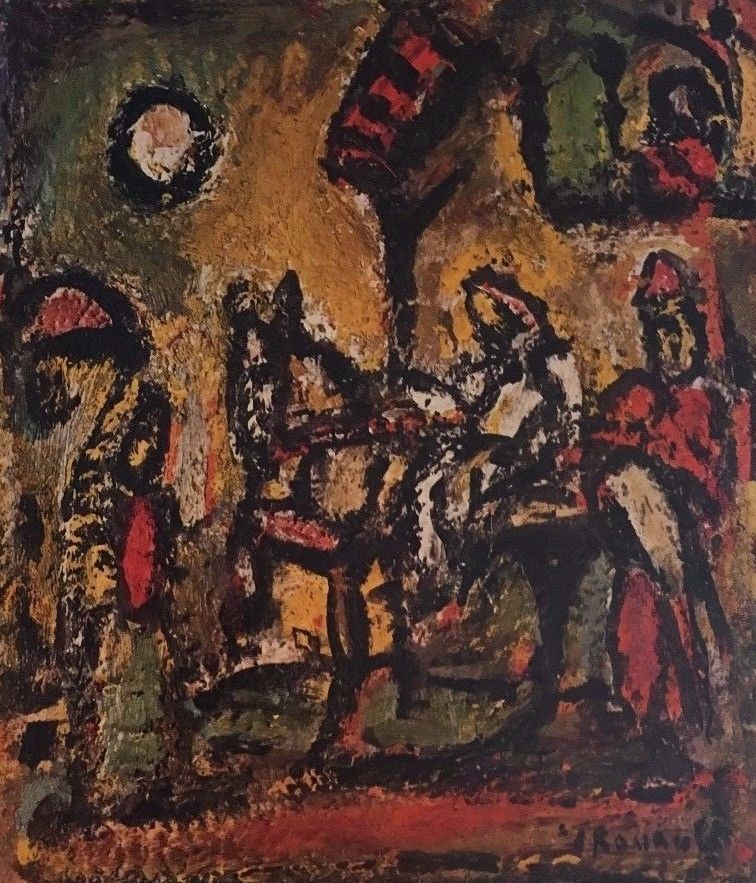Currently reading: Remaking the World by Andrew Wilson 📚
Currently reading: Remaking the World by Andrew Wilson 📚
Currently reading: The Moviegoer by Walker Percy 📚
Finished reading: Demon Copperhead by Barbara Kingsolver 📚
Finished reading: The Moviegoer by Walker Percy 📚
Finished reading: A Shining by Jon Fosse 📚
Finished reading: Doors in the Walls of the World by Peter Kreeft 📚
Poet and painter via AJ:
Picture of a Nativity
By Geoffrey Hill
Sea-preserved, heaped with sea-spoils,
Ribs, keels, coral sores,
Detached faces, ephemeral oils,
Discharged on the world’s outer shores,
A dumb child-king
Arrives at his right place; rests,
Undisturbed, among slack serpents; beasts
With claws flesh-buttered. In the gathering
Of bestial and common hardship
Artistic men appear to worship
And fall down; to recognize
Familiar tokens; believe their own eyes.
Above the marvel, each rigid head,
Angels, their unnatural wings displayed,
Freeze into an attitude
Recalling the dead.
 Rouault
Rouault
RIP Dr. Keller. Thank you for your faithful work.
I would like to pass along this white paper on church renewal. This mostly acts as a bookmark for myself and a semi-public “thank you” to Dr Keller.
But why did such occurrences remain episodes also? The reason lies in the mistaken assumption that the shaping of our lives can be left to a series of individual decisions. Whatever goal in life we entrust to this kind of implementation we in fact surrender to erosion. Such a policy ignores both the frailty and strength of human nature. On the spur of the moment, we normally act out what has been nurtured in our daily practices as they have been shaped by the norms of our time. When we sit in our easy chair and contemplate what to do, we are firmly enmeshed in the framework of technology with our labor behind us and the blessings of our labor about us, the diversions and enrichments of consumption. This arrangement has had our life-long allegiance and we know it to have the approval and support of our fellows. It would take superhuman strength to stand up to this order ever and again. If we are to challenge the rule of technology, we can do so only through the practice of engagement.
Nonviolent direct action seeks to create such a crisis and establish such creative tension that a community that has consistently refused to negotiate is forced to confront the issue. It seeks so to dramatize the issue that it can no longer be ignored. I just referred to the creation of tension as a part of the work of the nonviolent resister. This may sound rather shocking. But I must confess that I am not afraid of the word “tension.” I have earnestly worked and preached against violent tension, but there is a type of constructive nonviolent tension that is necessary for growth. Just as Socrates felt that it was necessary to create a tension in the mind so that individuals could rise from the bondage of myths and half-truths to the unfettered realm of creative analysis and objective appraisal, we must see the need of having nonviolent gadflies to create the kind of tension in society that will help men to rise from the dark depths of prejudice and racism to the majestic heights of understanding and brotherhood. So, the purpose of direct action is to create a situation so crisis-packed that it will inevitably open the door to negotiation